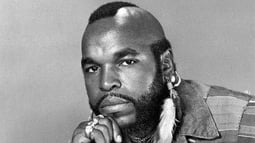

Hair loss: what are the causes ?
Photos Getty Images
Words Clément Laré
Share the article on
Hair loss can be an obsession for many men. When the time arrives, it is difficult to escape it. Horace explains the reasons why your hair falls off.
There is one thing that makes many men upset: losing their hair. However, the passage of time launches the irreversible countdown towards the end of a full haired head. In 2015, an Ifop survey revealed that 13% of French men say they suffer from baldness and that among the others three out of four feel they are losing their hair. Add to this those who don't assume it and you will understand that lucky are those who escape it!
Whose fault is it? As the Harvard Medical School publication reminds us, the vast majority of hair loss in men is due to the convergence of three factors: hereditary predisposition, male hormones and advancing age. We then speak of androgenetic alopecia (the medical term for "hair loss").
Hair loss: testosterone is the guilty
It is a transformation of testosterone that will cause hair loss. In contact with an enzyme, it will be transformed into dihydrotestosterone (DHT), a molecule that will push the hair to renew itself more quickly, explains the French Dermatology Society. After several cycles, the hair follicle will eventually tire, until it dies and disappears. At its ultimate stage, androgenetic alopecia can lead to baldness, leaving you bald.
Who says hormone says that this disorder can affect men as early as puberty. But it's usually when you get older that the risks increase. After the age of 50, 50% of men would be affected, according to the American National Library of Medicine’s website. Hair loss generally follows a well-known pattern: the temples and foreheads begin to thin before the top of the skull is affected.
A hereditary problem
If you are affected, there are not many people to blame except your family tree: this problem is above all hereditary. For example, the common idea is that you often look at your father's hair to find out where you stand. However, according to a 2017 study published in the scientific journal PLOS Genetics, it is not so much the paternal genetic heritage as the maternal one that influences the evolution of your hair implantation.
Other causes of hair loss
While androgenetic alopecia is the most common cause of hair loss, there are also other reasons. Alopecia, an autoimmune disease, can create round patches where the hair no longer grows. Impossible to predict, it can affect both men and women. A high dose of stress on the body can also cause hair to fall out: this often appears two to three months after a traumatic event such as an illness, major surgery or infection. Medicines can also contribute to this, especially those used for chemotherapy. Finally, your hair can also fall out after having been attacked, in particular by heating processes (curling iron, straightening iron) or chemical processes (colouring, perming, etc.). It is therefore best to pamper your hair as much as possible.















